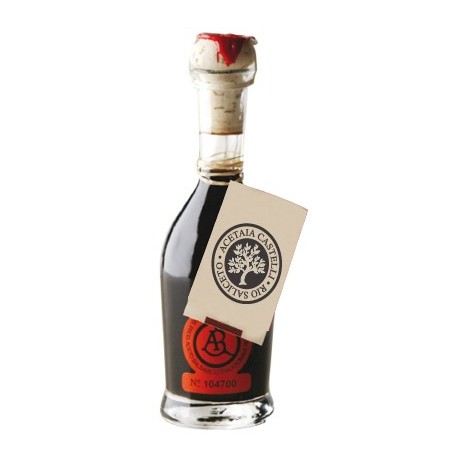



This is the most “vinegary” of the three Traditional Balsamic Vinegars. The hallmark of Aragosta Label is its more pronounced sensation of volatile acidity. Its delicate perfume and pleasantly intense acidity make it the ideal choice for carpaccio, raw vegetables and marinades. It can be warmed up to enhance the flavour of fish or meat and used in sauces.
 Use your preferred payment method
Use your preferred payment method
Use the payment method you prefer and complete the order in complete safety
 Free shipping
Free shipping
For orders over € 300 free shipping throughout Italy!
 Services for companies
Services for companies
Request the price list reserved for companies and B2B
The production of the Traditional Balsamic Vinegar of Reggio Emilia is regulated by protected designation of origin (PDO) guidelines and it is obtained simply by fermenting the sugar and acid of the cooked must. But the secret of Reggiano Balsamic is in the successive excellent ageing that goes on inside a set of barrels of different woods for long periods of time, never less than 12 years. The refinement of a bouquet that becomes ever intense, delicate and pleasing to the nose and taste, is the most complex and delicate phase, and it is here that a vinegar maestro's experience becomes essential. While the process of acidification for common vinegar is fomented with wine, for producing the Reggio Emilia balsamic vinegar the process is fomented with cooked must. For classic tradition, the production takes place in wooden casks arranged in sets, the number of which must never be less than three. The three phases of vinegar production are the alcohol fermentation, the acid oxidation and the aging. Casks made of oak, chestnut, mulberry, cherry, ash, and wormwood are prevalently used, each one yielding a particular aroma to the vinegar, rendering it unique.
Data sheet